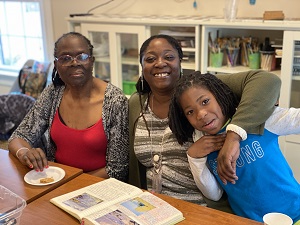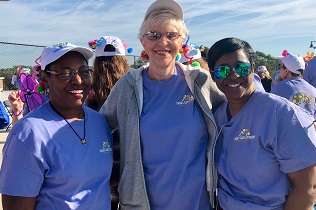Building a Team: Creating a family who gets it

That’s why it’s so important to create a close circle of family and friends around you “who get it”. Make a conscious effort every day to stay connected with family, friends and others in your support system. Ask questions, ask for help, ask for support. You WILL burn out if you try to handle and do everything yourself.
Many caregivers are dealing with progressive diseases with symptoms that get worse over time. Shouldering the load yourself can diminish the quality of the care you provide. To prevent caregiver burnout, it’s essential to reach out for support. Here’s help getting started:
-
Be realistic. Caregiving is demanding. There’s only so much you can do on your own. Remember that asking for help doesn’t make you inadequate or selfish.
-
Spread it out. You may worry that no one will be willing to help you, but you won’t know until you ask. Although some people may indeed say no, remember that most of your friends and loved ones probably want to help but simply don’t know how.
-
Suggest specific tasks. Perhaps a neighbor could do some yard work or pick up your groceries. A relative could sort bills or fill out insurance papers. A friend might take your loved one for a daily walk.
-
Consider abilities and interests. If a loved one enjoys cooking, ask him or her to help with meal preparation. A neighbor who likes to drive might be able to provide transportation to doctor appointments. A friend who enjoys books might read aloud to your loved one.
Establishing Your team

• Family members or friends of you or your loved one who will listen without judgment
• Your church, temple, or other place of worship
• Caregiver support groups
• A therapist, social worker, or counselor
• National caregiver organizations
• Organizations specific to your family members illness or disability